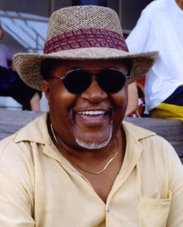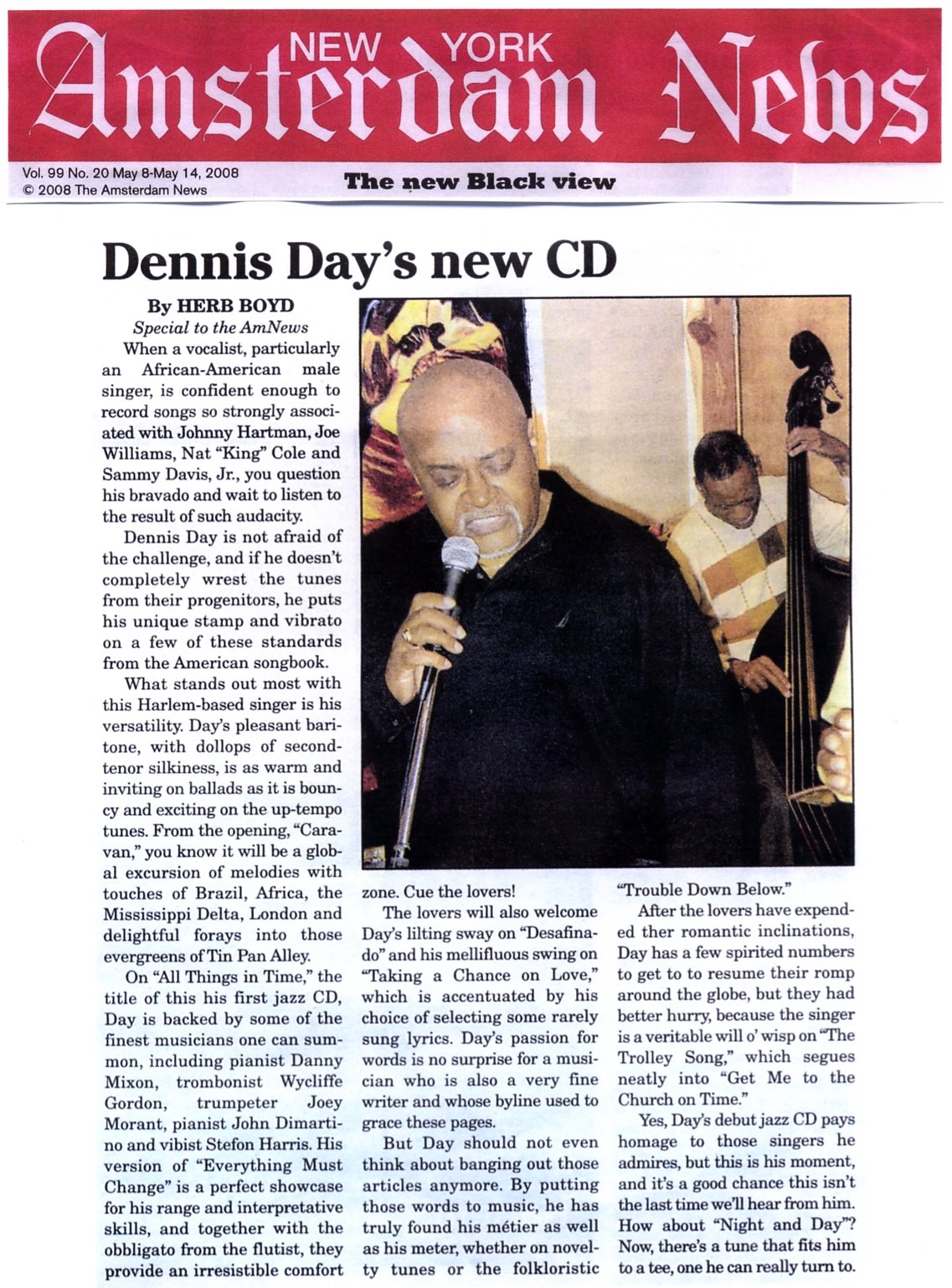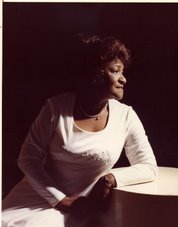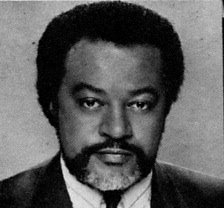“When Dietrich Bonhoeffer first attended Harlem’s Abyssinian Baptist Church, it was unlike anything he had ever experienced,” says the Reverend Henry Mitchell. Mitchell is among a host of clergy, scholars, historians, theologians, and former students of Bonhoeffer interviewed in the documentary film Bonhoeffer, directed and produced by Martin Doblmeier in 2004. This film is an important document because it examines a legacy of faith, courage, and costly discipleship.
The film chronicles the life and martyrdom of the German theologian, whose strong opposition to Nazism cost him his life. Bonhoeffer’s faith and heroism, along with his incisive and progressive Christocentric ideas, established him as one of the most influential and compelling Christian philosophers of the modern era.
Bonhoeffer traveled to New York City in the summer of 1930 to pursue further theological training, arriving in the U.S. as Adolph Hitler was beginning his rise to power in Germany. While on a post-doctoral teaching fellowship at Union Theological Seminary, Bonhoeffer was mentored by Rheinhold Niebhur. Niebhur is regarded by many as the father of modern social ethics and he drew widely from the writings and essays of Black literary figures and social critics of the Harlem Renaissance era. Niebhur’s influence on Bonhoeffer broadened Bonhoeffer’s views on the role of Christianity and the Church in the world.
Nowhere is Bonhoeffer’s capacity for embracing a more ecumenical worldview made more profoundly apparent than in his description of his initial encounter with the Black Church in America. Bonhoeffer was introduced to the Abyssinian Baptist Church in Harlem by an African American fellow seminarian, Franklin Fisher. At Abyssinian he found the marriage of the sacred and the political highly appealing.
The preaching and social commitment of Adam Clayton Powell Senior had a powerful effect on Bonhoeffer. His diary entry in the summer of 1931 reads, “In contrast to the didactic style of White churches, I believe that the Gospel in Black Churches truly preaches the Black Christ. The Black Christ is preached with rapturous passion and vision.”
These emotional elements of worship, combined as they were with uncompromised commitment to the Bible, were apparently foreign to Bonhoeffer’s prior religious experience, and they had a profound effect on expanding his sense of the possibilities and breadth of the Gospel as the bedrock of social justice. Bonhoeffer saw parallels to oppressed Black Americans and the Jews of Germany and he gained an even deeper perspective on the true meaning of Sanctorum Communio (the Beloved Community).
Bonhoeffer even taught Sunday School at Abyssinian and cultivated a deep appreciation of Negro spirituals. He approached worship at Abyssinian with deep humility. Later he would bring recordings of his favorite spirituals back to Germany and incorporate what his colleagues deemed these “strange” songs tinged with African rhythms and folkloric sensibilities into his worship and teaching at the seminary he helped to found in Finkenwald. Testimonials in the film by former students and congregants give an indication of the depth of the influence Black religious experience held over his ministry in Germany.
After his return from New York, family members and former students say his preaching was like none they had ever heard. The confluence of Christian social activism as evinced by the dynamic example of Adam Clayton Powell Senior, fused with Bonhoeffer’s own deductions (influenced by Neibhur) helped to crystallize his personal theology of Christocentric ethics. Ultimately, he concluded that “the will of God is not a set of rules, but requires examination of every situation as an act of faith.” For Bonhoeffer, the existential challenge was therefore to forever be engaged with reexamining the will of God.
Doblmeier artfully presents a balanced view of Bonhoeffer’s humanity, revealing his painful dilemmas and occasional errors in judgment, which help to demystify the saintly aura generally ascribed to this highly venerated theologian. We watch Bonhoeffer struggle with his own personal conflicts – his desire for a pastoral vocation, a burgeoning romance, and a predelection for the monastic, contemplative life. In his diary, he anguishes over his decision to refuse to preach at the funeral of his beloved twin sister’s Jewish father-in-law. Bonhoeffer writes of the shame of his fear, after succumbing to the advice of friends who warned him against participating in the funeral for fear of Nazi retaliation and the risk of losing the burgeoning career and ministry that he had so carefully planned. Expression of this sense of shame at having failed to meet a moral challenge allows the viewer to glimpse the man in a moment of epiphany – he senses his own human limitations and failings, but affirms his hope in the power of redemption. Through these rare glimpses the film offers perceptive hints into Bonhoeffer’s inner life as one whose spiritual quest is propelled by a desire to affirm his faith in the will of God over reason and pragmatism.
As I viewed the film, I was struck by the similarities between Dietrich Bonhoeffer and the American Civil Rights leader Dr. Martin Luther King Jr. Both men were raised in nurturing upper middle-class families and each was an early college entrant and recipient of the Ph.D degree before the age of 30. Both men were theological activists whose radical commitment to Christianity caused the tragic end to their lives, each at the age of 39. Each man applied his understanding of how activism and faith can be lived out in a world alienated by the fear of difference. With xenophobia as the evil scourge, Naziism for Bonhoeffer became the antithesis of his notion of Sanctorum Communio, while racism in the U.S. undermined the establishment of King’s vision of the Beloved Community.
In their respective roles as moral leaders against the tide of crushing anti-Semitism and racial hatred, each possessed a Herculean capacity to synthesize existential truth from a range of intellectual resources found in their social contexts. Bonhoeffer, who would become a Lutheran pastor and covert activist, and King, who would be an ordained Baptist minister and proponent of nonviolence, each used different means to confront social evil. Bonhoeffer, in his evolution as the conspirators’ moral conscience, sought out Mahatmas Ghandi as his spiritual sage. His New York experience in a predominantly Black Harlem Church helped to conflate his Christocentric and social justice beliefs into covert Christian activism. King’s nonviolent pacifism for the American of African descent, also informed largely by Ghandi’s teaching, proved a useful political construct in bolstering the Black American’s struggle for social justice using nonviolent means.
The exegesis and theological underpinnings absorbed from classical teachings of modern social philosophers like Hegel, Kant, and Niebhur must have impacted strongly on each man. The film, however, fails to adequately examine Bonhoeffers’ moral conclusions, which did compel him to conspire to participate in an assassination attempt on Adolph Hitler’s life in an effort to destroy an evil regime.
If comparisons are to be made between Bonhoeffer and King for purposes of contemporary reference, subsequent character analysis must offer a deeper insight into each man’s reasoning and the formative experiences that shaped him. As avowed men of Christian faith each acted in concert with his belief system, centered on redemption and reconciliation with God, and in the desire to do God’s will. For Bonhoeffer, the end seemed to justify the means, at least with respect to eradicating the evil of Nazism. As a conspirator, Bonhoeffer did not deem acts of duplicity, including deception and murder, sinful. Rather, he saw them as obligatory acts designed to restore moral and spiritual order to a fragmented society. Conversely, Dr. King averred that war and violence are seldom justifiable and must be rejected as a means in the struggle for social justice.
Doblemeier strongly infers that the contemporary activism of Harlem’s Adam Clayton Powell Senior had a significant impact on Bonhoeffer’s emerging activism to thwart Nazism. Although the Doblemeier film accurately characterizes Bonhoeffer’s excursions between Germany and New York, it falls short of developing insight into the formative aspects of his profound experience in the Black church. Bonhoeffer’s sojourn in America, during which he taught Sunday School and worshipped at Harlem’s Abyssinian Baptist Church, are treated as mere educational and cultural diversions instead of being characterized as the near-epiphany experiences that he later describes as “a great liberation.” Many modern-day theologians suggest that the ethos of the Black church deepened Bonhoeffer’s understanding of Christianity as a socially and politically active community of believers. Abyssinian Baptist Church embodied the Sanctorum Communio for Bonhoeffer.
Bonhoeffer was executed on April 9, 1945, a few short months before the end of World War II, for his pivotal role in the Nazi resistance and in a botched assassination attempt on Adolf Hitler.
As the Abyssinian Baptist Church embarks upon its bicentennial celebration, Abyssinian 200, indeed the world may be reminded of this Harlem church’s global impact and influence.
(At left, see video of Dr. Cornel West's comments on Bonhoeffer and Abyssinian.)
Copyright 2007 D-Day Media Group
Friday, May 25, 2007
Subscribe to:
Post Comments (Atom)












4 comments:
Dear Mr. Day,
Thank you for the post regarding Abyssinian and Dietrich Bonhoeffer. You may be interested in knowing that on June 23rd a play called "Awaiting Judgment" that brings together Martin Luther King, Jr. and Dietrich Bonhoeffer in prison will premiere as part of the 50th Anniversary of the United Church of Christ. The play is written by Rev. Arthur Cribbs, pastor of San Marino Congregational Church in California.
Kevin McGruder
President
Abyssinian Archives and History Ministry
Awaiting judgment will premiere in Hartford, CT.
Mr. McGruder,
Thanks so much for the information. I've put it on my calendar.
Regards,
Dennis Day
Mr. McGruder,
Thanks so much for the information. I've put it on my calendar.
Regards,
Dennis Day
Post a Comment